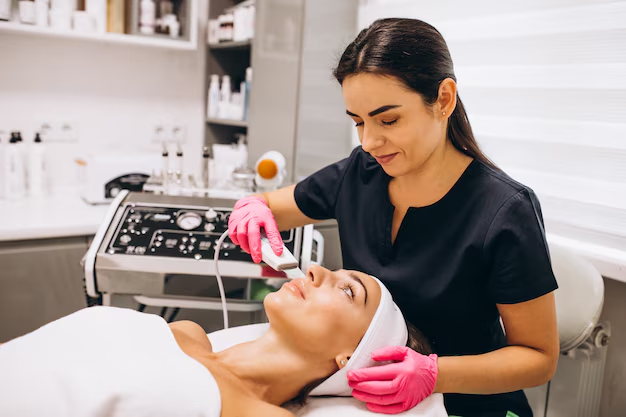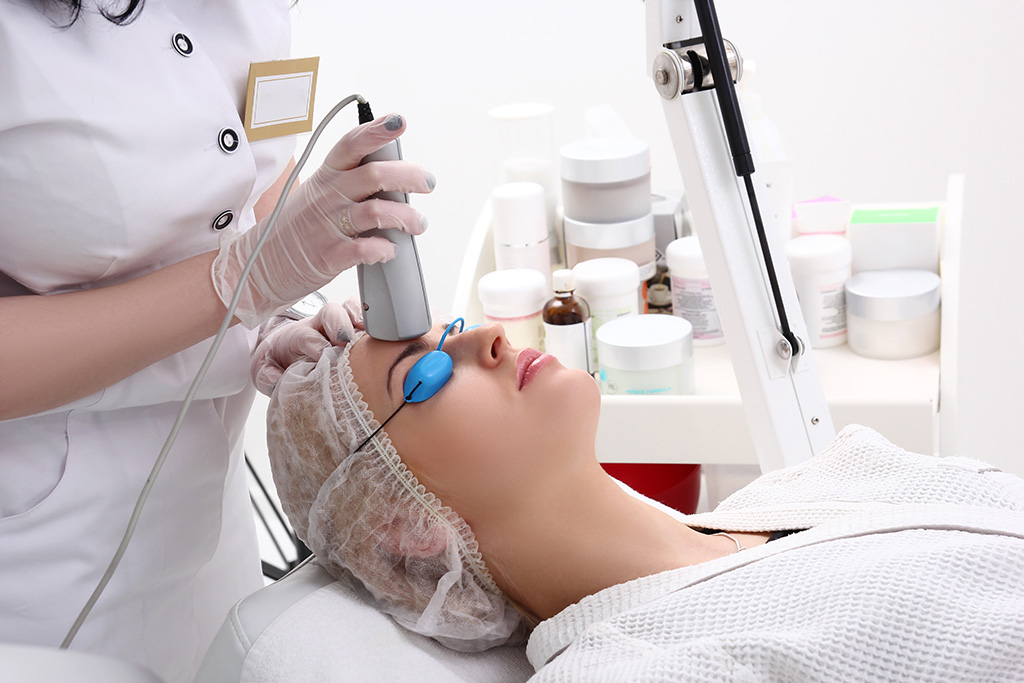
Aestheticians are skincare experts who focus on improving the health and appearance of your skin. Aestheticians have solutions for acne, aging, and trying to keep your skin looking flawless; they go beyond standard skincare routines by offering tailored treatments. This guide discusses the role of an aesthetician, their services, and how you can benefit from them. Find out about the qualifications and skills that make aestheticians indispensable in achieving your skin care objectives.
What Is an Aesthetician?
An aesthetician is a licensed practitioner who specializes in enhancing skin health and appearance through various therapies. They do treatments such as facials, peels, scrubs, and even fighting against acne using modern techniques that help improve skin texture and tackle diverse skin concerns.
Aestheticians undergo training so they understand the composition of the skin, products used for skincare, as well as treatment processes. Their tasks involve examining the skin of customers, identifying problems with them, and developing individualized treatment plans. In addition to basic treatments like peels or microdermabrasion to aid in rejuvenating the skin, thus promoting long-term welfare one may also seek advanced options such as LED therapy among others.
They also give recommendations on taking good care of your body including product use at home to maintain healthy skin apart from not diagnosing or treating medical conditions affecting it. Among other things, aestheticians help create a glowing youthful complexion but do not cure diseases like cancer.
What Services Does an Aesthetician Offer?
The services offered by aestheticians include facial treatments, chemical peeling, mechanical dermabrasion (microdermabrasion), also known as exfoliation, and hair removal among others. Further treatment options include acne therapy and anti-aging procedures addressed especially for clients’ concerns that take into account their specific types of epidermis.
All sorts of interventions starting from regular facials to more complex procedures are conducted by aestheticians. The facial rejuvenation process involves exfoliation, cleansing, and moisturizing the skin while chemical peels get rid of dead cells leading to a smoother texture. Microdermabrasion is a non-invasive technique that also enhances the texture and color of your skin as it sheds off the old one.
Hair removal techniques such as waxing or threading are done by aestheticians who do acne treatments minimizing breakouts and preventing scars. They consider each client’s case individually when choosing plans for them so that the services correspond with the aims set by patients.

What is the Difference Between an Aesthetician and a Dermatologist?
An aesthetician, focuses on facial care that enhances beauty, for example, facials or exfoliation. In contrast a dermatologist is a medical professional dealing with diagnoses as well as treatments of skin illnesses such as eczema, psoriasis, and skin cancer.
Although aestheticians and dermatologists work with skin in some respects they perform different roles. Aestheticians offer non-medical skincare services that are aimed at making the skin look good by use of methods such as peels, microdermabrasion and facials. They usually practice their profession under the supervision of a dermatologist sometimes in medical offices but mostly in salons or spas.
As opposed to them dermatologists are doctors who deal with the diagnosis of skin diseases carry out surgeries and prescribe medication for such ailments among others. In addition to this aestheticians may refer clients to a derma if they discover that there is something wrong that requires more than just cosmetic treatment; thus ensuring that both health concerns related to beauty are addressed.
What Kind of Education Does an Aesthetician Need?
Aestheticians must complete state-approved programs in cosmetology or esthetics that range from 300 to 1,500 hours depending on the requirements of each state followed by passing a licensure exam consisting of written exams and practical portions.
Therefore becoming an aesthetician requires formal education and training. To begin with, individuals aspiring to become aestheticians can enroll in either cosmetology or aesthetics programs, approved by their states which teach about different aspects including the anatomy of the skin, treatment techniques, professional products used, etc.
Depending on regional laws this process takes several months. After finishing school, aestheticians sit for a licensing examination set by the state to evaluate their practical skills and knowledge in relation to this field. This is because technology is fast changing and new methods are being discovered every day. Some will also take up additional training on specific subjects such as laser treatment or chemical peels so that they can be better equipped.
How frequently must you visit an aesthetician?
The right schedule for seeing an aesthetician is four to six weeks for the purpose of maintaining skin health. Frequent visits lead to deep cleansing, exfoliation, and prevention of skincare problems.
The frequency with which one should see an aesthetician depends on the individual’s skin needs; however, a general rule of thumb is every 4-6 weeks. This timetable coincides with the natural regeneration cycle of skin, which allows for deep cleansing, exfoliation, and treatments that will keep your complexion healthy and glowing.
They also help prevent acne, crow’s feet, and age spots from worsening. But if you have particular concerns about your skin type your aesthetician may recommend more frequent visits based on a unique plan developed around your goals and your skin’s needs so that it brings long-term benefits.

Are Aesthetician Services Good for Acne?
Yes, facialists can reduce acne through deep cleaning, exfoliating, or chemical peels among other treatments. Regular facials as well as targeted treatments stop breakout, and open pores thereby discouraging the development of future acnes.
Aestheticians offer different therapies that effectively manage and minimize acne outbreaks. Through deep cleansing facials impurities oils and debris are removed from the skin hence preventing clogging of pores. Also known as chemical peels and microdermabrasion respectively, these scrubs promote faster cell shedding lowering chances of breakouts while fading away scars left by pimples along the way.
Professional aestheticians safely perform extractions to remove blackheads without causing any harm internally. Moreover, they advise clients about skincare routines at home recommending good products such as those supporting pure skin or clear skin Over time regular salon appointments can greatly improve troubled complexions helping someone to achieve less spotty healthier-looking skin than one.
How Do Aestheticians Promote Anti-Aging?
Aestheticians use treatments such as chemical peels, microdermabrasion, and LED therapy to reduce the appearance of fine lines and wrinkles. These procedures increase collagen production, enhance skin texture, and maintain young skin.
Aestheticians are experts in anti-aging treatments that target age-related visible signs such as fine lines, wrinkles, and loose skin. Chemical peeling is a procedure that removes the dead skin cells from the surface thus leaving much smoother and newer-looking skins. Microdermabrasion helps in sloughing off the skin which results in cell turnover as well as stimulation of collagen development.
This particular type of therapy employs various wavelengths of light to influence collagen synthesis and minimize wrinkle manifestations. Regular sessions maintain how tight your skin feels and looks while at-home anti-aging care products are also advised by aestheticians for sun beds.
In Conclusion
Aestheticians play an important role in helping people have healthy-looking skin that glows naturally. They deal with different types of dermal afflictions like acne or aging through personalized solutions, cutting-edge techniques, and professional insights. Furthermore, aesthetician visits are critical for overall health improvement not only just to improve your looks but overall health too by learning about why people seek aesthetician services in skincare you can then make sensible decisions regarding your skincare routine.
